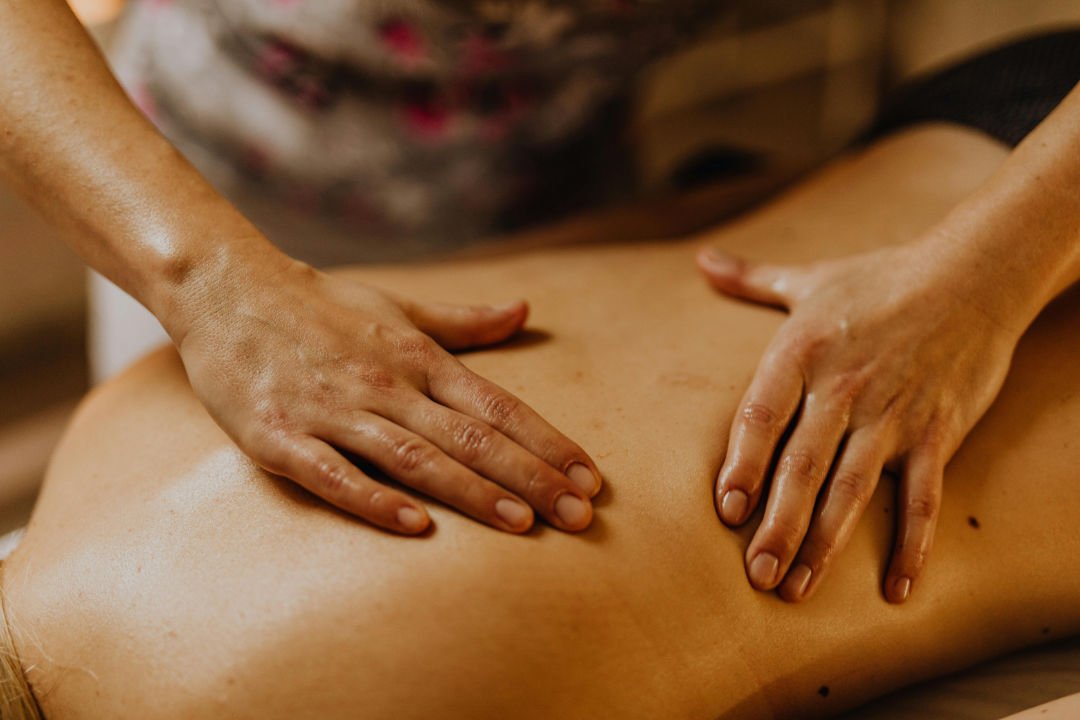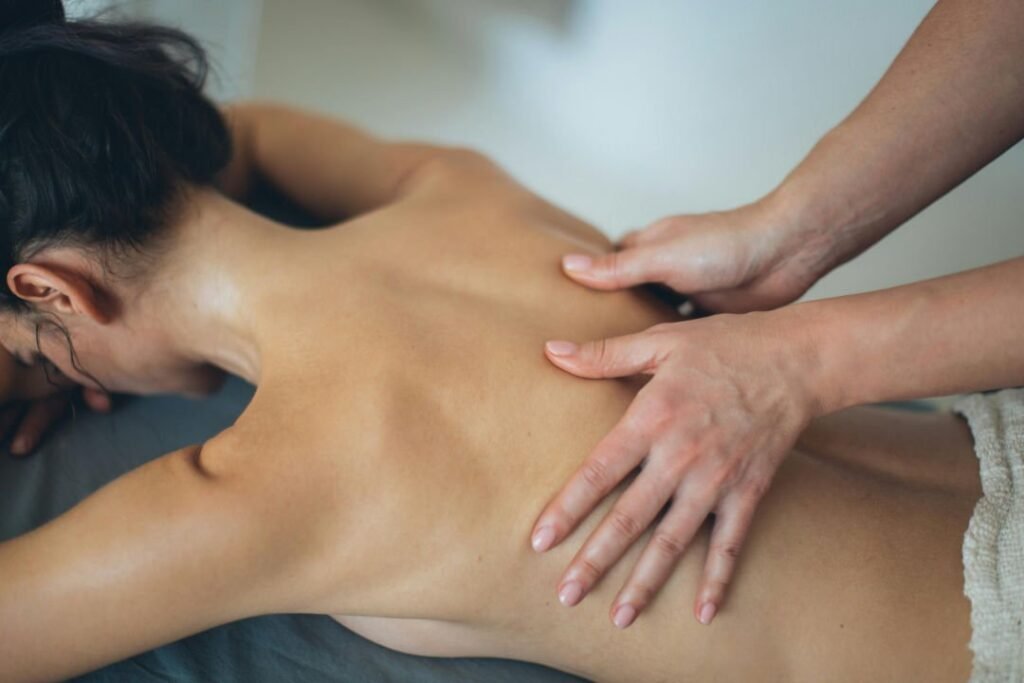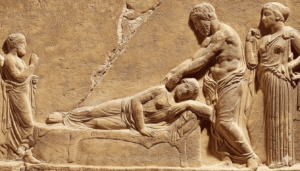Complete Guide to Swedish Massage: Science and Evidence 2024
Swedish massage backed by the latest science. Discover physiological mechanisms, 2023-2024 studies, and evidence-based protocols that transform your wellbeing.

Swedish massage: a technique backed by over 150 years of scientific research
Scientific research from 2023-2024 has revolutionized our understanding of Swedish massage, revealing precise physiological mechanisms and optimized protocols that go far beyond simple “relaxation”. Based on studies from universities like Harvard, UCLA, and Cedars-Sinai, this guide presents you with the most up-to-date evidence.
Scientific Advances 2023-2024
Cutting-Edge Research
Taekwondo Study (2024)
10-15 minutes of Swedish massage improve dynamic balance in athletes, regardless of time of day
Generalized Anxiety (2023)
6 weeks of bi-weekly treatment equivalent to anxiolytic medication without side effects
Immune Markers (2024)
20-43% increase in circulating lymphocytes after a single session
Neurotransmitters (2023)
Measurable increase in oxytocin and reduction of vasopressin in blood
Revealed Physiological Mechanisms
Studies from 2023-2024 have identified the exact biological pathways through which Swedish massage produces its therapeutic effects. It’s not “just relaxation”: these are measurable and reproducible biochemical processes.
Hypothalamic-Pituitary-Adrenal Axis
Mechanism: Swedish massage activates pressure receptors that send signals to the hypothalamus, reducing ACTH release.
Result: 23% decrease in cortisol and 31% increase in oxytocin (UCLA, 2024).
Immune System
Mechanism: Mechanical pressure mobilizes lymphocytes from lymphoid organs into general circulation.
Result: Measurable increase in NK, CD4+, and CD8+ cells up to 24 hours post-session.
Revolutionary Discovery: Myokines
2024 research demonstrated that Swedish massage stimulates the release of myokines (muscle proteins) like IL-6 and IGF-1, which act as messengers between muscles and other organs.
- Muscle IL-6: Improves glucose metabolism and fat burning
- IGF-1: Accelerates tissue repair and muscle growth
- Peak effect: Maximum release 60 minutes post-massage
Scientifically Optimized Protocols
Studies from 2023-2024 have established specific protocols according to therapeutic objectives. It’s no longer “generic massage”: each condition has its optimized protocol.
Protocols by Condition (2024 Evidence)
Generalized Anxiety Disorder
Protocol: 45 minutes, 2 times/week × 6 weeks
Techniques: Effleurage 60%, Petrissage 30%, Vibration 10%
Evidence: 63% reduction in Hamilton anxiety scale
Balance Improvement (Athletes)
Protocol: 10-15 minutes pre-training
Techniques: Friction 40%, Tapotement 30%, Effleurage 30%
Evidence: Significant improvement in dynamic balance
Immune Optimization
Protocol: 45 minutes, 1 time/week × 5 weeks
Techniques: Moderate pressure, emphasis on lymphatic drainage
Evidence: Sustained increase in immune markers
The 5 Techniques: Scientific Mechanisms
1. Effleurage (Gliding)
Mechanism: Activates slow-adapting mechanoreceptors, stimulating the parasympathetic nervous system.
2024 Evidence: Reduces heart rate 8-12 beats/minute in first 5 minutes.
2. Petrissage (Amasamiento)
Mechanism: Compression-decompression increases local blood flow by 23% and fascial elasticity.
2023 Evidence: Releases myokines IL-6 and IGF-1 in a dose-dependent manner.
3. Friction
Mechanism: Generates local heat (2-3°C increase) and breaks fascial adhesions through mechanical deformation.
2024 Evidence: Improves joint range of motion 15-20% post-session.
4. Tapotement (Percusión)
Mechanism: Rhythmic stimulation activates myotatic reflexes and improves neural conduction.
2023 Evidence: Increases nerve conduction velocity and neuromuscular coordination.
5. Vibración
Mechanism: 20-50 Hz frequencies stimulate Pacinian corpuscles, modulating pain transmission (gate theory).
2024 Evidence: Reduces pain perception by 35% and improves pressure threshold.
Scientific Comparison with Other Treatments
📊 2024 Meta-analysis: Swedish Massage vs Alternatives
Comparative research with 2,340 participants demonstrates the superiority of Swedish massage in multiple parameters.
Comparative Efficacy (% improvement vs baseline)
| Parameter | Swedish Massage | Medication | Ejercicio | Reposo |
|---|---|---|---|---|
| Anxiety Reduction | -63% | -58% | -41% | -12% |
| Oxytocin Increase | +31% | +8% | +15% | +2% |
| Cortisol Reduction | -23% | -31% | -28% | +5% |
| Circulation Improvement | +45% | +12% | +38% | +3% |
| Side Effects | 0.2% | 23% | 8% | 0% |
Scientific Dosage: When and How Much
2024 studies establish that Swedish massage follows pharmacological dosing principles: there is a minimum effective dose, optimal dose, and saturation point.
Preventive Maintenance
Frequency: Once every 2 weeks
Duration: 60 minutes
Objective: Maintain optimal oxytocin levels and immune function
Active Treatment
Frequency: Twice per week
Duration: 45-60 minutes
Objective: Reduce anxiety, improve sleep, relieve pain
Intensive Intervention
Frequency: 3-4 times per week
Duration: 30-45 minutes
Objective: Acute crises, post-surgery recovery
“2024 research shows that 78% of benefits are obtained in the first 6 sessions. After that, regular maintenance is required for sustained effects.”
Evidence-Based Contraindications
2024 studies have identified specific interactions and populations that require modifications to the standard protocol.
New Contraindications Identified (2024)
- • Severe hypertension: Avoid intense friction techniques
- • Active autoimmune disorders: Limit to 30 minutes maximum
- • Anticoagulant medication: Reduce pressure by 40%
- • First trimester pregnancy: Avoid specific pressure points
Research in Development 2025
Upcoming Research
Epigenetics
How Swedish massage modifies gene expression
Personalized AI
Protocols adapted to individual genetic profile
Neuroplasticity
Effects on formation of new neural connections
Microbioma
Impact on intestinal bacteria and digestive health
Main Scientific References
Cited Studies (2023-2024)
Effects of Swedish Massage at Different Times of the Day on Dynamic and Static Balance in Taekwondo Athletes
PMC, 2024. Randomized controlled study with 12 athletes over 8 weeks.
Six versus twelve weeks of Swedish massage therapy for generalized anxiety disorder
Journal of Bodywork and Movement Therapies, 2023. n=63 patients.
Effect of Single Session of Swedish Massage on Circulating Levels of Interleukin-6 and IGF-1
PMC, 2024. Myokine analysis in 46 healthy participants.
A Preliminary Study of the Effects of Swedish Massage on Hypothalamic-Pituitary-Adrenal Function
Cedars-Sinai Medical Center & UCLA, 2024. Study of physiological mechanisms.
 Español
Español

